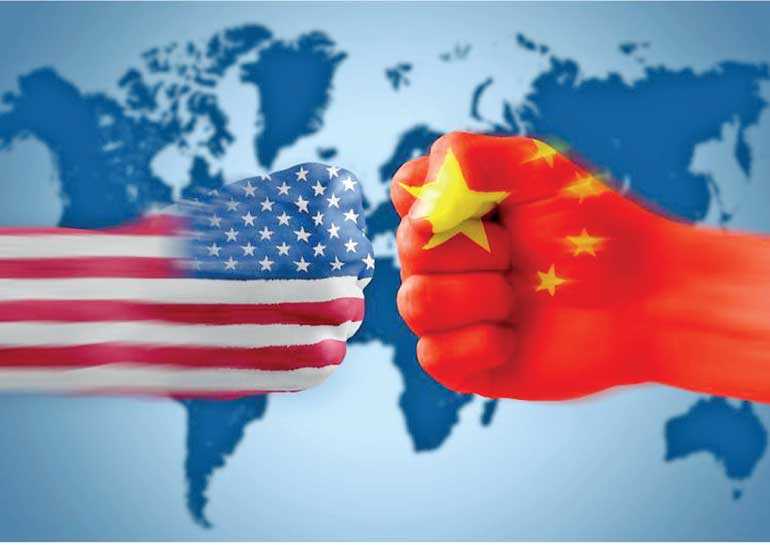Wednesday Feb 18, 2026
Wednesday Feb 18, 2026
Friday, 15 November 2019 00:00 - - {{hitsCtrl.values.hits}}

While the only show in Trump Town is the contentious impeachment hearings which commenced today, the premier National Public Radio (NRP) devoted a segment to a concise report by its special  correspondent Lauren Frayer who had travelled to Colombo and Jaffna. NPR’s host Ari Shapiro, introducing the segment, explained the background of the situation: Sri Lanka faces a pivotal moment. The mostly Buddhist island nation spent 26 years fighting a civil war, which ended a decade ago when Government forces defeated ethnic Tamil separatists. But the war is still vivid as Sri Lankans go to the polls on Saturday to elect a new President.
correspondent Lauren Frayer who had travelled to Colombo and Jaffna. NPR’s host Ari Shapiro, introducing the segment, explained the background of the situation: Sri Lanka faces a pivotal moment. The mostly Buddhist island nation spent 26 years fighting a civil war, which ended a decade ago when Government forces defeated ethnic Tamil separatists. But the war is still vivid as Sri Lankans go to the polls on Saturday to elect a new President.
Lauren Frayer, reporting from Jaffna, carries the voices of distressed and still mourning mothers of children gone missing in the civil war, who hold the former Defence secretary, Gotabaya Rajapaksa responsible. He commanded the much-feared Intelligence Corps when his older brother was President, and Frayer reports that he is now the front-runner to become Sri Lanka’s next one. She alludes to an interview last month where Rajapaksa had laughed off these human rights allegations, stating, “You are talking all the time on the past, no? Ask the future – I’m trying to become the President of the future Sri Lanka.” When challenged with the question, “Can you move on without addressing the past?” Rajapaksa’s response had been, “Yeah sure, we can move on.”
Frayer assesses that Sri Lanka wants to move on from its bloody past and many voters want a strong pair of hands to fight a new threat. This past Easter, Islamist suicide bombers killed more than 250 people at hotels and churches. St. Sebastian’s, north of the capital Colombo, was one of them. Masses have resumed here, but a statue of Jesus is still pockmarked with shrapnel, and the parish priest Father Manjula Fernando is still frightened. “Terrorists and extremists are everywhere. We need a good leader who is going to eradicate all these people,” he stated.
Going further, the NPR correspondent reports that when Sri Lankans think of a leader who eradicates his enemies, they think of Gotabaya Rajapaksa. To many of the country’s majority Buddhists, he is a war hero. His official campaign video shows Buddhist temples and lots of soldiers with guns. The message, says political scientist Jehan Perera, is that security and pride in one’s nation trumps “other matters”. Among these “other matters”, such as human rights and welfare, is the question of how much is too much Chinese investment. The report states that these are not getting much play in this election, despite efforts by Rajapaksa’s main rival Sajith Premadasa.
Premadasa draws support from moderates, minorities and the youth. Frayer recounts that she had run into a group of Premadasa volunteers going door to door north of Colombo. This man is good, they had stressed, he is going to do something for this country – something like build houses, feed the poor, and most importantly, heal after a 26-year civil war.
But one volunteer admitted that these doorstep conversations keep coming back to Gotabaya Rajapaksa and whether a strongman will become the leader of yet another country – this time, Sri Lanka.